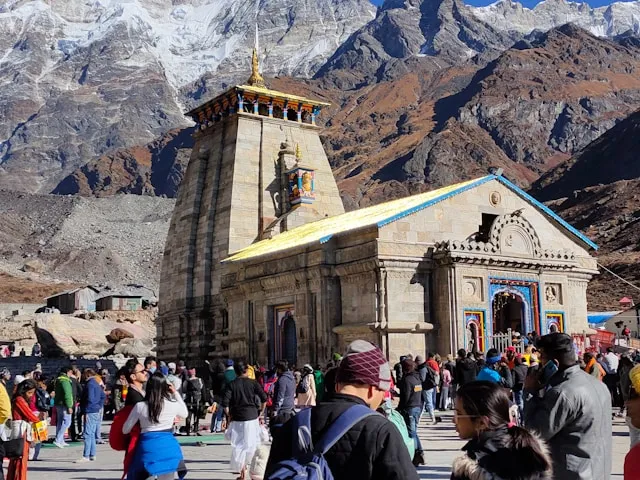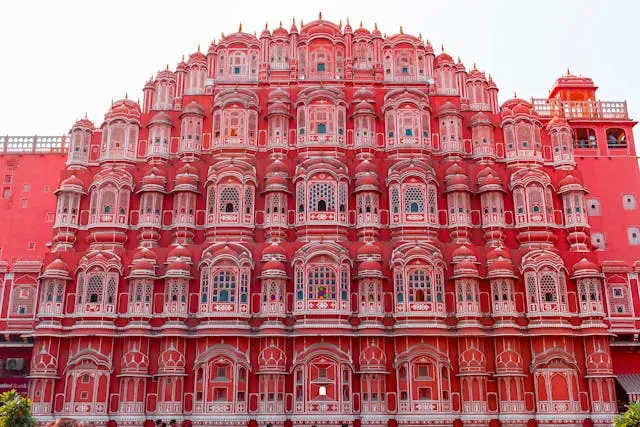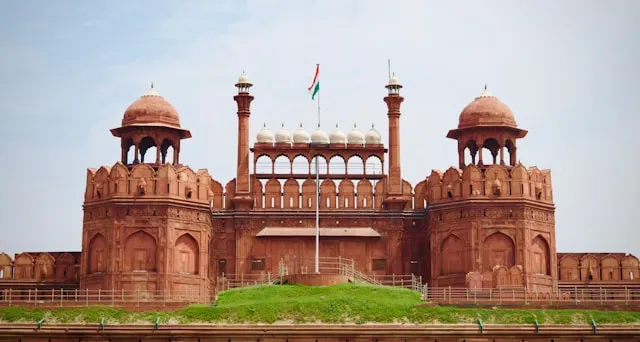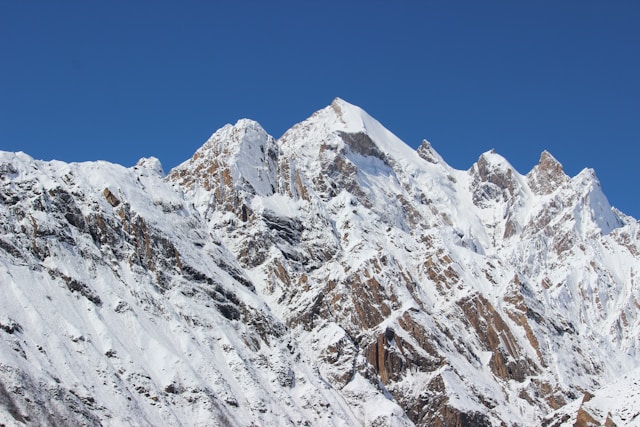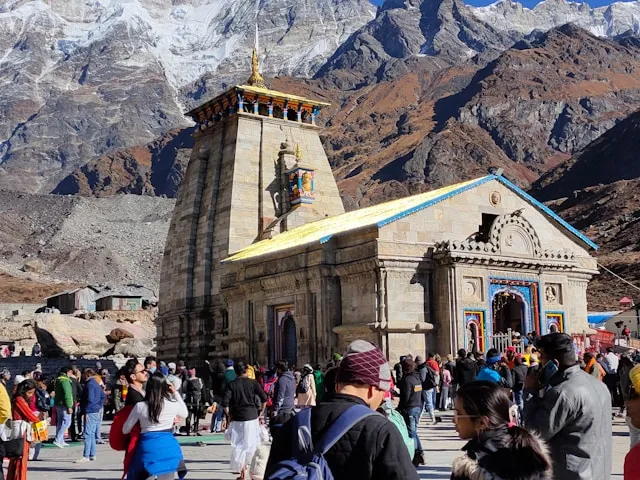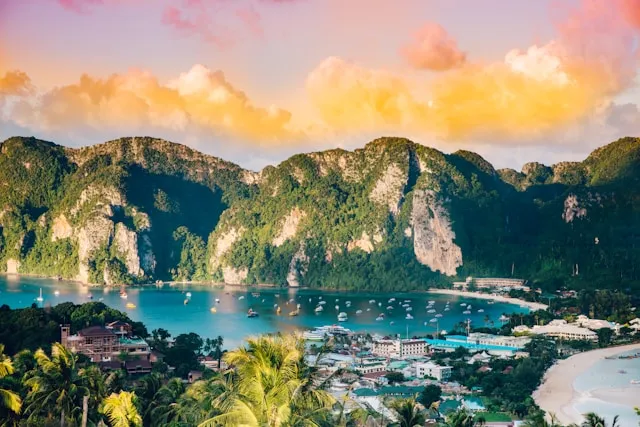Vaishno Devi Temple Travel Guide
Vaishno Devi Temple
About Vaishno Devi Temple Travel Guide
Destination Overview – Vaishno Devi Temple
Vaishno Devi Temple, located in the Trikuta Mountains of Jammu and Kashmir, is one of the most revered Hindu pilgrimage sites in India. Dedicated to Goddess Vaishno Devi, the shrine attracts millions of devotees annually who undertake the challenging trek to seek blessings and spiritual solace. The temple is nestled amidst serene natural beauty, offering a unique blend of faith, devotion, and scenic tranquility. The journey to the holy cave shrine is as significant as the destination itself, providing pilgrims with an experience of physical endurance and spiritual upliftment.
Top Attractions & Places to Visit – Vaishno Devi Temple
The Holy Cave Shrine: Houses the sacred idols of Goddess Vaishno Devi in the form of three pindis (stones).
Bhawan: The main temple complex offering various facilities for pilgrims.
Ardh Kuwari: A resting point halfway through the trek.
Sanjichhat: The summit point offering panoramic views of the Himalayan ranges.
Nearby Attractions: Katra town, Holy Mansar Lake, and Raghunath Temple in Jammu.
Best Time to Visit – Vaishno Devi Temple
The ideal time for pilgrimage is from March to November when the weather is pleasant and trekking conditions are safe. Winters (December to February) can be extremely cold and snowy, making the trek difficult. The temple remains open throughout the year, with peak months during Navratri festivals.
How to Reach – Vaishno Devi Temple
Air: Jammu Airport is the nearest airport, approximately 50 km from Katra.
Rail: Katra Railway Station connects the temple town with major Indian cities.
Road: Well-connected by road; frequent bus and taxi services operate between Jammu and Katra.
Trekking: The 12 km trek from Katra to the temple is the primary route, supported by pony rides, palanquins, and helicopter services for those unable to trek.
Accessibility for Differently-Abled Travelers – Vaishno Devi Temple
Facilities such as battery-operated vehicles, pony rides, and helicopter services are available for differently-abled and elderly pilgrims, ensuring easier access to the shrine.
Things to Do & Experiences – Vaishno Devi Temple
Undertake the spiritual trek to the holy cave.
Participate in rituals and aarti at the temple.
Explore the surrounding scenic hills and take in breathtaking views.
Visit nearby religious sites and experience local culture in Katra.
Attend special ceremonies during Navratri and other festivals.
Accommodation Options – Vaishno Devi Temple
Katra and nearby towns offer a range of accommodations, from budget lodges and guesthouses to comfortable hotels and pilgrimage rest houses managed by the temple board. Advance booking during peak seasons is recommended.
Local Cuisine & Dining – Vaishno Devi Temple
Pilgrims can enjoy simple vegetarian meals and traditional Himachali dishes at eateries in Katra. Langar facilities (community meals) are also available near the temple premises.
Travel Tips & Safety – Vaishno Devi Temple
Carry adequate water, snacks, and comfortable trekking shoes.
Respect religious customs and maintain cleanliness.
Use authorized guides and transport services.
Keep emergency contact numbers handy; the area has good medical facilities.
Avoid trekking at night for safety reasons.
Weather Details & Packing Suggestions – Vaishno Devi Temple
Spring & Autumn: Light woolens, trekking shoes, and sunglasses.
Summer: Light cotton clothing with a jacket for evenings.
Winter: Heavy woolens, thermal wear, and gloves due to snow and cold temperatures.
Currency Exchange & Banking Facilities – Vaishno Devi Temple
ATMs and currency exchange counters are available in Katra town. It’s advisable to carry some cash during the trek as digital payments may not be accepted everywhere.
Connectivity & SIM Card Info – Vaishno Devi Temple
Mobile networks such as Airtel, Jio, and Vodafone have good coverage in Katra and along the trekking route. WiFi is available at some rest stops and in Katra.
Itinerary Suggestions – Vaishno Devi Temple
1-Day: Start early from Katra, complete the trek to the shrine and return by evening.
2-Days: Combine the Vaishno Devi pilgrimage with visits to nearby attractions like Holy Mansar Lake and Jammu city.
3-Days: Add visits to Raghunath Temple, Bahu Fort, and local markets in Jammu.
Nearby Destinations to Explore – Vaishno Devi Temple
Jammu: Known as the City of Temples, rich in cultural heritage.
Patnitop: A scenic hill station ideal for relaxation after the pilgrimage.
Katra: A bustling base town with local markets and cultural experiences.
Shopping & Souvenirs – Vaishno Devi Temple
Buy religious souvenirs such as prayer beads, idols, Rudraksha malas, and local handicrafts from shops in Katra. Traditional Kashmiri shawls and woolens are popular buys.
Cultural & Historical Background – Vaishno Devi Temple
The temple is dedicated to Goddess Shakti and has been a sacred site for centuries. Mythology states that Goddess Vaishno Devi appeared here to fulfill the wishes of her devotees. The temple’s enduring faith and spiritual significance make it one of India’s foremost pilgrimage destinations.
Best Transport Options – Vaishno Devi Temple
Taxis, buses, and shared cabs operate between Jammu and Katra. Trekking remains the primary mode to reach the shrine, supported by pony rides and helicopter services for convenience.
Nearest Railway Station – Vaishno Devi Temple
Katra Railway Station is the closest railhead connecting the region to major Indian cities.
FAQs About Vaishno Devi Temple
How long is the trek to Vaishno Devi?
Approximately 12 kilometers from Katra.
Is the trek suitable for elderly and differently-abled?
Yes, with pony rides, palanquins, and helicopter services available.
Do I need a special permit to visit?
No special permits are required, but registration at the Bhawan is mandatory.
What is the best time to visit Vaishno Devi?
March to November offers the most comfortable trekking conditions.
Are there any accommodation facilities near the temple?
Yes, Katra has a variety of hotels and guesthouses catering to all budgets.
Is the temple open during winters?
Yes, but heavy snowfall can make trekking challenging.
Sustainability & Responsible Tourism – Vaishno Devi Temple
The temple authorities encourage pilgrims to keep the environment clean by avoiding plastic use, disposing of waste properly, and respecting the fragile mountain ecosystem. Responsible tourism practices help preserve the sanctity and natural beauty of the region.
Need a Vaishno Devi Temple Travel Guide Customized Itinerary?
Let us create your perfect Vaishno Devi Temple Travel Guide journey

Gallery
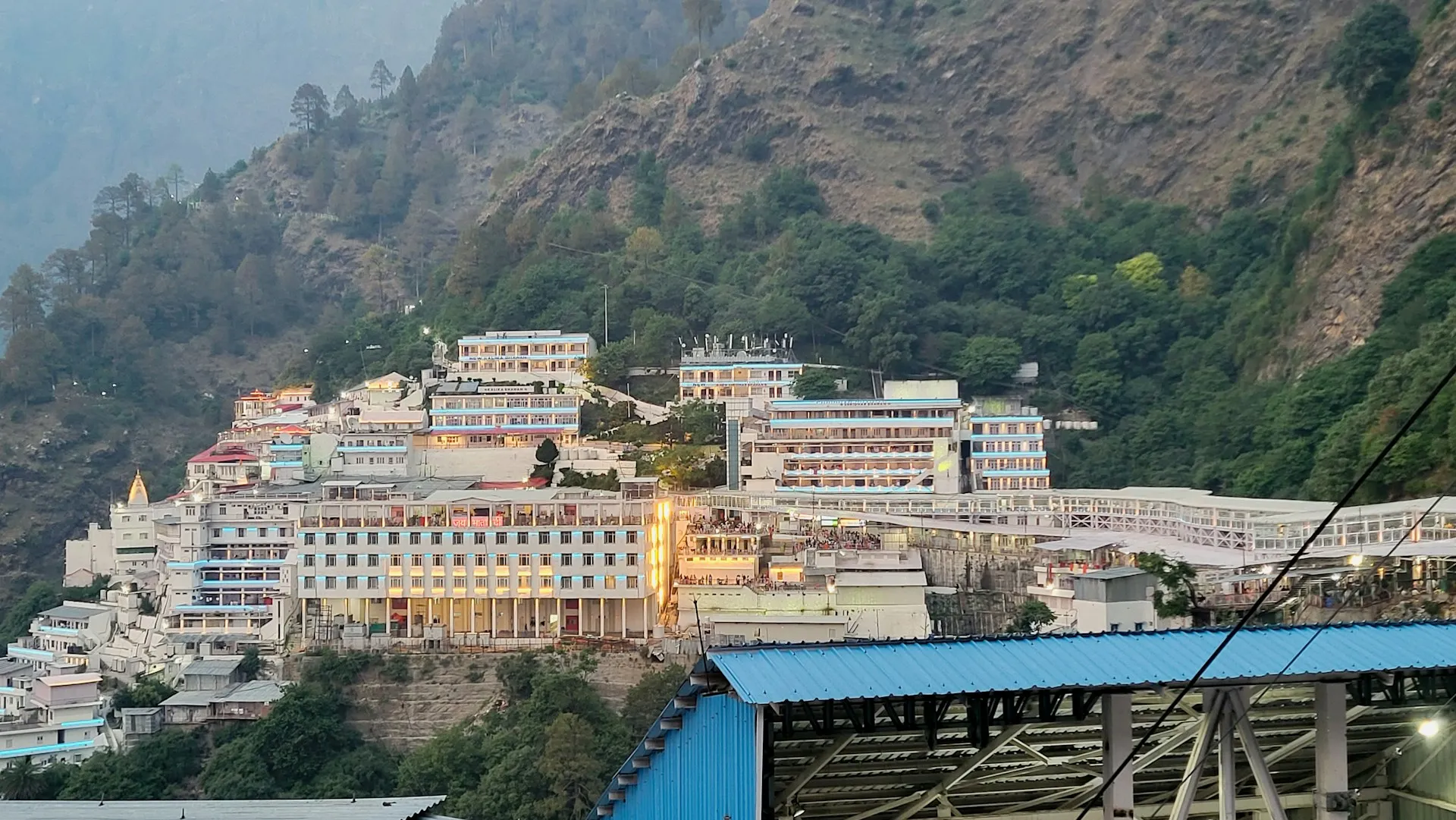
Weather
Location Map
Vaishno Devi Temple
Latest Blog Posts
Latest News: Vaishno Devi Temple – Sacred Hindu Pilgrimage in Jammu & Kashmir
What Our Travelers Say
Real experiences from our valued customers
"Going to Kedarnath was on my bucket list. Thanks for making it a smooth and unforgettable spiritual journey"
Ravi Sharma (Udaipur, India:)
"Kedarnath was simply breathtaking. A beautiful, well-organized journey. It exceeded all my expectations."
James Foster (Vancouver, Canada)
"My trip to Dwarka was phenomenal! The entire experience was both spiritual and well-organized. Highly recommend."
Chris Harris (Chicago, USA)
"Visited the Ajmer Sharif Dargah. It was a wonderful, well-coordinated trip. Everything went according to plan."
Sophie Davis (Toronto, Canada)
"Had a wonderful time at the Kashi Vishwanath temple. The entire trip was well-organized and very comfortable."
Anil Thakur (Shimla, India)
"The Rishikesh Ganga Aarti was magical. The team ensured the trip was perfectly planned, making it an unforgettable experience."

